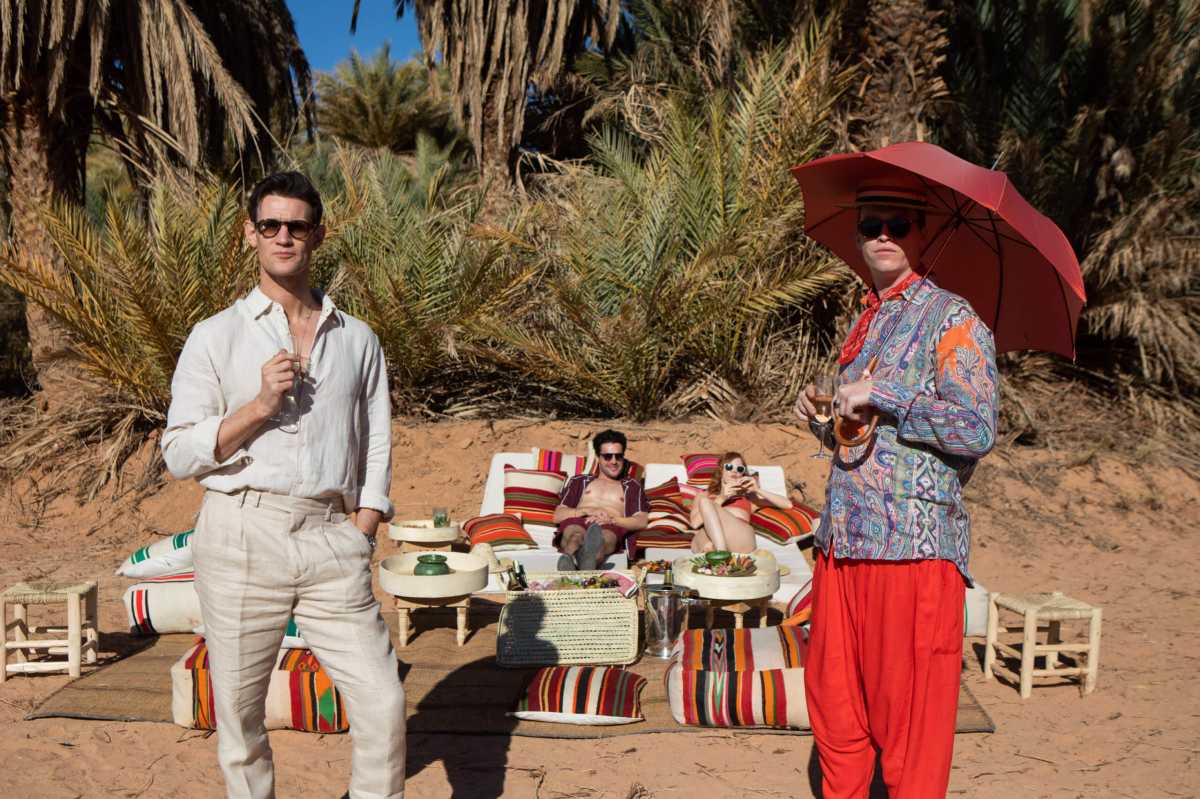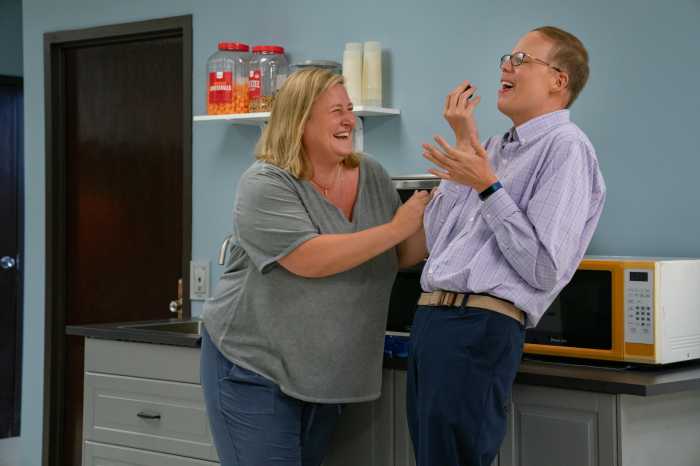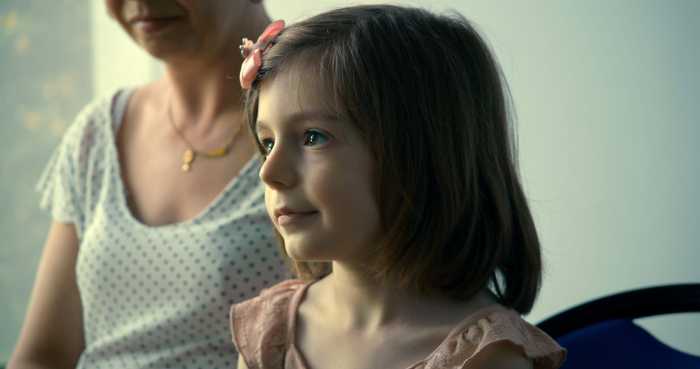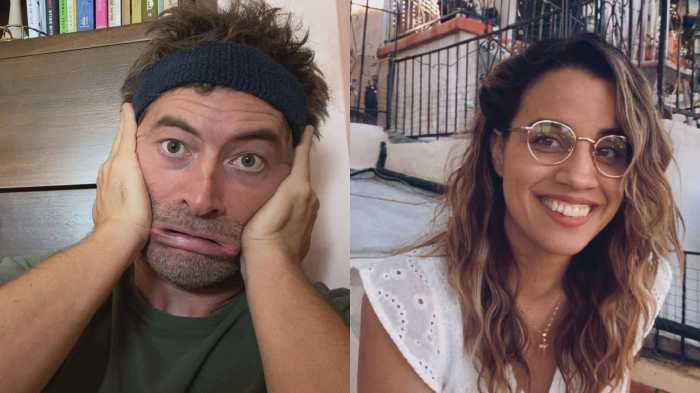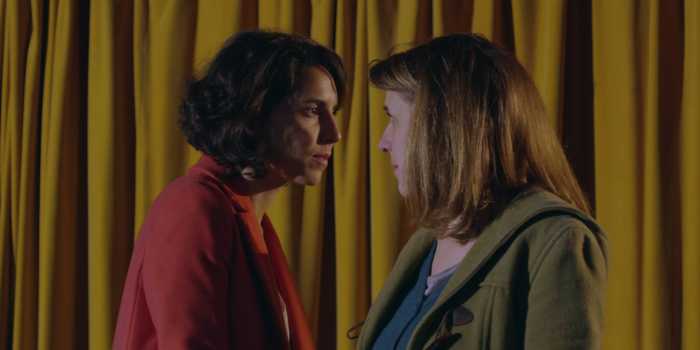White mischief is at the center of “The Forgiven,” a glossy, compelling morality tale about bad behavior in Morocco.
David Henninger (Ralph Fiennes) and his wife Jo (Jessica Chastain) arrive in Tangier on their way to a weekend soiree in the desert hosted by gay couple Richard (Matt Smith) and Dally (Caleb Landry Jones). However, when they get lost along the way, David, who has been drinking, hits and kills Driss (Omar Ghazaoui), a Moroccan teenager. It was an accident, David maintains; the young boy jumped in front of the car.
Arriving at the couple’s castle in the sand, David considers coming clean, calling the police, and acting contrite. However, Abdellah Taheri (Ismael Kanater), Driss’ father, requests David accompany him on a few days journey to go bury his son in their village. David reluctantly agrees, hoping he will be forgiven, but also wondering if he will be injured or killed. (Cue unfunny ISIS remarks.) As David is leaving Richard snidely jokes about calling to make sure David hasn’t been raped.
Such is the dark humor of this serious drama, written and directed by John Michael McDonagh, who adapted Lawrence Osborne’s novel. While the rich, white, entitled characters make comments about Driss being “a nobody,” Driss says earlier that “Cruel is the word for the faggots at Azna (Asni).” And if there is any doubt about how the staff of the castle feel about the owners, one worker spits in the sleeping Dally’s hangover cure.
David’s storyline is intercut with scenes of decadence at the gay couple’s castle. Jo, dressed to the nines, flirts with Tom Day (Christopher Abbott), an American financial analyst who has rebuffed Richard’s advances. His not-to-subtle overtures melt the icy Jo faster in the 104-degree desert heat. And while the couple kisses, a clink of glasses by Richard and Dally might suggest that such a seduction may have been pre-planned. After all, Richard and Dally are Jo’s friends. David was not looking forward to the weekend and makes an offensive remark about his hosts being part of an “Edwardian tradition” of gays coming to North Africa “to bugger little Arab boys,” as if to voice his contempt.
As “The Forgiven” continues to unfold, and the characters all show their stripes, some questions arise. A fact revealed about Driss’ death provides a different perspective of the accident. Richard also attributes several rumors from the school he and David attended (separately) that put his guest in a very bad light. (One involves mice being affixed with parachutes featuring Nazi insignias being thrown off the roof of a building to their deaths.)
McDonagh is certainly pushing buttons here, showing the scorn the Arabs have for the white characters, and the savage nature the whites have towards the Arabs and each other. The ideas about privilege and topics like American hegemony and imperialism come across as mostly facile even if they are accurate. The satire here is more cringe-inducing than stinging.
The film thankfully provides an emotional center in David’s discussion with Abdellah. Their talk prompts the caustic Brit to reevaluate things and seek out redemption. It also leads to the film’s powerful conclusion. Moreover, an exchange David has about honor and decency with Anouar (Saïd Taghmaoui) — an Arab who helps David with translations and customs on his journey — strikes an emotional chord. Of course, this contrasts with the other characters who are defined by their witty bon mots, debauchery, and adultery.
Even though the film feels superficial, Ralph Fiennes and Jessica Chastain give strong, emotional performances. The tensions in their relationship are percolating throughout, which is why there is real impact when things come to a head. In support, Christopher Abbott and Matt Smith cut dashing figures and spout their crisp dialogue with aplomb. However, Caleb Landry-Jones is largely wasted (both physically and metaphorically) as the mischievous Dally. And while Said Taghmaoui delivers a nice speech about wanting to live in Sweden, his character is also not given enough to do.
“The Forgiven” is gorgeously lensed by Larry Smith, and the costumes and set design are fabulous. Everyone looks great even if they are hateful. But this ambitious film ultimately feels slight, as if McDonagh only skimmed the surface of the novel’s key issues, rather than tackling the themes in depth. A metaphor about a fossil tries to carry too much weight and it is particularly clunky.
As the weekend ends, many of the characters feel regret. It is to the film’s credit that viewers will feel it as well.
“The Forgiven” | Directed by John Michael McDonagh | Opening in Theaters July 1 | Distributed by Roadside Attractions/Vertical Entertainment.

